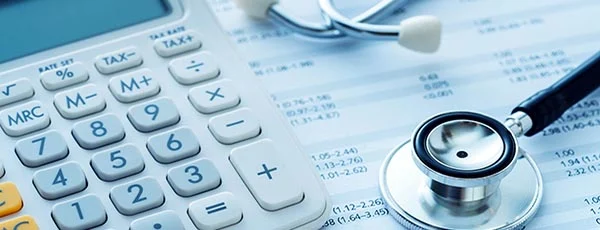
Get rid of your debt faster with debt relief
Choose your debt amount
Or speak to a debt consultant 844-731-0836
- Personal loans can be good tools for bill consolidation.
- The personal loan should have better terms than the loans it replaces.
- Consolidating bills with a personal loan can improve your credit score.
- Start your FREE debt assessment
Table of Contents
Having multiple debt payments to make each month can make you feel like a hamster stuck on an endless wheel. You pay and pay, but the bills just keep coming.
It's frustrating and can be a roadblock to achieving your financial goals. Deciding to consolidate bills using a loan can provide some financial relief--and potentially save money on interest. Learn more about bill consolidation, how to consolidate bills with a personal loan, and other bill consolidation alternatives.
What Is Bill Consolidation?
Bill consolidation, also referred to as debt consolidation, allows you to combine multiple debts using a personal loan. This strategy can reduce the number of debt payments you have to make each month.
Consolidating bills with a loan is a form of debt relief. Choosing to consolidate bills is something you might consider as an alternative to a debt management plan (DMP) or debt settlement.
Here's how those options work:
- Debt management plans allow you to combine credit card payments into a single payment each month. You make one payment to the DMP, which is distributed to your creditors.
- Debt settlement means your creditors agree to accept less than what's owed for a past due balance. You can negotiate debt settlements yourself or have a debt relief company do it for you.
Bill consolidation, debt management plans and debt settlement could all help you get out of debt faster. But only debt consolidation involves getting a loan to combine debts.
How Does Consolidating Your Bills Work?
If you're not familiar with how bill consolidation works, it's not that complicated. First, you take out a personal loan for bill payment and use the proceeds to pay off the debts you want to consolidate. You then make one payment to the bill consolidation loan each month until the balance is paid off.
It's possible to consolidate bills from different types of creditors. For example, you might get a debt consolidation loan to pay off:
- Credit card bills
- Medical bills
- Auto repair bills
- Household bills
- Bills for other large expenses
The amount of debt you'll be able to consolidate with a loan can depend on a few things, starting with your choice of lender.
Bill consolidation loan limits can vary from one lender to the next. For example, some lenders might cap personal loans for bill payment at $35,000 or $50,000. Others might increase the limit to $100,000.
The amount you can borrow to consolidate bills depends on your credit scores, income and how much debt you already have. If you have a high debt-to-income (DTI) ratio, meaning a lot of your salary goes to debt repayment each month – or a low credit score, you may be limited to a smaller loan amount.
When Bill Consolidation Makes Sense
Should you consolidate bills? The answer depends on your goals and overall financial situation. Here are some reasons that you might consider consolidating bills.
You need to simplify payments.
Juggling multiple debt payments each month can be problematic if it causes you to miss a payment. Late payments can damage your credit score, which can make it harder to borrow or qualify for lower interest rates.
Consolidating bills means you have just one payment to make. You can simplify things further by scheduling an automatic payment to your bill consolidation loan each month. Some lenders will give you an interest rate discount when you enroll in autopay as a bonus.
You're hoping to lower your rate.
High interest rates can make it harder to pay down debt, especially if you have credit card bills to pay. According to the Federal Reserve, the average credit card APR was 16.17% as of February 2022.
Consolidating debts with a personal loan could help you pay less interest if you qualify for a lower rate. That's why it's important to compare offers from several lenders to see which offers the best deal on debt consolidation loans.
The rate you pay for a bill consolidation loan depends on your credit scores and financial situation. To get the lowest rates, you'll generally need excellent credit.
Does that mean you shouldn't bother with a bill consolidation loan if you have fair or bad credit? Not necessarily. If your new loan has better terms than the loans it replaces (lower rate, lower payment, more time to pay) it might be worth consolidating.
You're committed to paying off debt.
Bill consolidation is most effective when you're committed to paying off the loan and not acquiring any new debt. Open-ended accounts like credit cards make it easy to stay in debt. With personal loans, however, you can’t add to your balance – only pay it down. Make your payments as agreed and your balance will be zero when your term ends.
How to Get a Loan for Bill Payment
If you think a bill consolidation loan is the right option for you, here are the next steps to take.
- Decide how much you need to borrow. Add up the total amount of debt you want to pay off. Note the monthly payment and interest rate for each one.
- Check your credit. Checking your credit can give you an idea of which bill consolidation loans you might have the best chance of getting. You can get your credit reports for free at AnnualCreditReport.com.
- Compare loan options. Before applying for any bill consolidation loan, carefully compare rates, fees, and loan terms from different lenders. Also, consider the borrowing amounts other lenders offer and how that aligns with your needs.
- Check your rates. Some, though not all, lenders allow you to check your rates online without affecting your credit. Doing so can help you narrow down which bill consolidation loans you want to apply for.
- Select a loan and apply. Once you've compared rates, you can choose a lender and fill out the loan application. Many lenders allow you to apply online and upload any necessary documentation.
- Accept the loan terms. If you're approved for a loan to consolidate bills, you can decide whether to accept the terms. You can then provide the lender with your bank account details to receive the loan proceeds if you agree to the loan.
After the proceeds from the loan hit your bank account, you can pay off the debts you want to consolidate. Or some programs pay them off as part of your loan closing process. You'll then start making payments to the debt consolidation loan according to the schedule set by the lender. Remember, paying automatically could help you land an interest rate discount.
Bill Consolidation Loan Alternatives
Using a personal loan to consolidate bills may not work for everyone. Knowing what other options you have for bill consolidation can help you decide on the best way to manage debt.
- Credit card balance transfer. Transferring credit card balances means moving balances from one card to another. The best balance transfer cards offer 0% APR for up to 23 months. Expect to pay a balance transfer fee (typically 3% of the balances transferred). If you're considering a credit card balance transfer, pay attention to how long the introductory APR lasts and how much you’ll pay to get it.
- Home equity loan. If you own a home, you might be able to tap your equity to pay off and consolidate bills. Home equity loans have low fixed rates and longer repayment terms. Because your home secures the loan, you risk losing the property to foreclosure if you fall behind on payments – so make sure you can safely afford them.
- Debt management plan. As mentioned, a debt management plan isn't a loan. It’s a consolidation program run by a credit counseling agency. You can combine multiple payments into one and possibly get reduced interest rates, fees waived or more time to pay.
- Debt settlement. Settling debts can help you zero them for less than what's owed, saving you some money. It may help you avoid bankruptcy if you've fallen behind on bills.
Talking to a debt relief expert can help you decide on the best way to approach debt repayment. Reaching out might seem a little overwhelming, but it's an important step if you need debt help.

Get rid of your debt faster with debt relief
Take the first step towards a debt-free life with personalized debt reduction strategies.
Choose your debt amount
Or speak to a debt consultant 844-731-0836
What does it mean to consolidate bills?
Consolidating bills means combining multiple payments into one so you have a single payment to make each month. Bill consolidation does not erase your debt, but it can make it easier to manage when you have fewer payments to keep track of.
Is it a good idea to consolidate all your bills?
Bill consolidation could be a good idea if it makes it easier to pay off debts and you can save some money. One of the dangers of bill consolidation is creating new debt, which can happen if you make new purchases on credit cards you've paid off with a consolidation loan.
How can I consolidate all my bills?
There are several ways to consolidate bills, including getting a bill consolidation loan, credit card balance transfers, home equity loans or home equity lines of credit. Choosing the right option to consolidate bills depends on how much debt you have to consolidate, whether you own a home and what kind of borrowing terms you’re offered.
Recommended Reads







